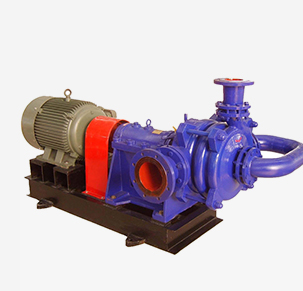Cebuano
- Afrikaans
- Albanian
- Amharic
- Arabic
- Armenian
- Azerbaijani
- Basque
- Belarusian
- Bengali
- Bosnian
- Bulgarian
- Catalan
- Cebuano
- Corsican
- Croatian
- Czech
- Danish
- Dutch
- English
- Esperanto
- Estonian
- Finnish
- French
- Frisian
- Galician
- Georgian
- German
- Greek
- Gujarati
- Haitian Creole
- hausa
- hawaiian
- Hebrew
- Hindi
- Miao
- Hungarian
- Icelandic
- igbo
- Indonesian
- irish
- Italian
- Japanese
- Javanese
- Kannada
- kazakh
- Khmer
- Rwandese
- Korean
- Kurdish
- Kyrgyz
- Lao
- Latin
- Latvian
- Lithuanian
- Luxembourgish
- Macedonian
- Malgashi
- Malay
- Malayalam
- Maltese
- Maori
- Marathi
- Mongolian
- Myanmar
- Nepali
- Norwegian
- Norwegian
- Occitan
- Pashto
- Persian
- Polish
- Portuguese
- Punjabi
- Romanian
- Russian
- Samoan
- Scottish Gaelic
- Serbian
- Sesotho
- Shona
- Sindhi
- Sinhala
- Slovak
- Slovenian
- Somali
- Spanish
- Sundanese
- Swahili
- Swedish
- Tagalog
- Tajik
- Tamil
- Tatar
- Telugu
- Thai
- Turkish
- Turkmen
- Ukrainian
- Urdu
- Uighur
- Uzbek
- Vietnamese
- Welsh
- Bantu
- Yiddish
- Yoruba
- Zulu
Telephone: +86 13120555503
Email: frank@cypump.com
Okt . 08, 2024 02:54 Back to list
sewer pump systems
Understanding Sewer Pump Systems An Essential Component of Wastewater Management
Sewer pump systems play a critical role in the effective management of wastewater in residential, commercial, and industrial settings. These systems are designed to transport sewage and wastewater from lower elevations to treatment facilities or higher elevation points, where gravity-based drainage is not possible. By maintaining the flow of wastewater, sewer pump systems help prevent flooding, protect public health, and ensure environmental sustainability.
At the heart of any sewer pump system is the wastewater pump itself. These pumps are usually submersible and can handle various types of waste, including liquids, solids, and semi-solids. Submersible pumps are installed within the sewage pit, preventing odors and reducing noise, which is advantageous in urban and suburban environments. The design of these pumps allows them to operate continuously, providing reliable service in often harsh conditions filled with corrosive materials.
One of the common types of sewer pump systems is the sump pump system, generally used in basements or low-lying areas
. When water or sewage builds up in a sump pit, the sump pump activates, pushing the wastewater out to a sewer line or drain field. This system is essential for preventing water accumulation, which can lead to structural damage and health hazards due to mold growth.sewer pump systems

Another type of sewer pump system is the ejector pump system, typically employed in homes that require pumping waste from below the public sewer line. Ejector pumps, equipped with a grinder, can handle waste that includes solids, making them instrumental in transporting sewage from basements or below-grade areas to the main sewer line. These systems are particularly important in regions where the natural terrain limits gravity flow.
Installation and maintenance of sewer pump systems are crucial for their efficient operation. A poorly designed or maintained sewer pump system can lead to blockages, backflow, and even system failure, all of which could result in costly repairs and potential health risks. Regular maintenance checks, including inspections of pump performance and cleaning of filters, are recommended to ensure the longevity and reliability of these systems.
Moreover, advancements in technology have significantly improved the efficiency of sewer pump systems. Modern pumps are typically equipped with smart sensors that monitor performance and detect issues before they escalate. These technological integrations allow for remote monitoring, ensuring that any problems can be addressed swiftly, minimizing downtime and damage.
In conclusion, sewer pump systems are vital components in the infrastructure of wastewater management. They ensure the safe transport of sewage, protect our living environments, and minimize health risks associated with wastewater. Understanding the function and maintenance of these systems is crucial for homeowners and facility managers alike. With ongoing advancements in technology, we can expect these systems to become even more efficient, sustainable, and adaptable to the increasing demands placed on our urban infrastructure. Regular checks, the right equipment, and an understanding of system dynamics are essential for harnessing the full potential of sewer pump systems in modern society.
-
Horizontal Split Case Pump with GPT-4 Turbo | High Efficiency
NewsAug.01,2025
-
ISG Series Pipeline Pump - Chi Yuan Pumps | High Efficiency, Durable Design
NewsAug.01,2025
-
Advanced Flue Gas Desulfurization Pump with GPT-4 Turbo | Durable & Efficient
NewsJul.31,2025
-
ISG Series Vertical Pipeline Pump - Chi Yuan Pumps | Advanced Hydraulic Design&Durable Construction
NewsJul.31,2025
-
ISG Series Vertical Pipeline Pump - Chi Yuan Pumps | Energy Efficient & Low Noise
NewsJul.31,2025
-
pipeline pump - Chi Yuan Pumps Co., LTD.|High Efficiency&Low Noise
NewsJul.31,2025










